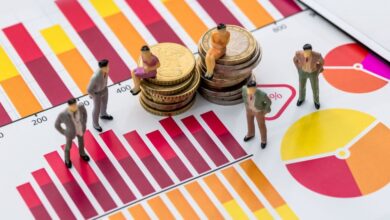Analyzing The Impact Of Proposed US Tariffs On Nike Amidst Global Trade Shifts

$NKE
Nike (NYSE:NKE), a global leader in athletic footwear and apparel, is facing a significant challenge due to the proposed US tariffs on Vietnamese imports. The company sources approximately 50% of its footwear and nearly a third of its apparel from Vietnam, making it highly susceptible to changes in trade policies between the US and Vietnam.
The proposed tariffs are part of a broader strategy by the US government to diversify its trade policies beyond China, with Vietnam now targeted as a major goods supplier. This shift comes as the US administration seeks to recalibrate its global trade relationships, potentially affecting a wide range of industries, including footwear and apparel. Nike’s reliance on Vietnamese manufacturing is mirrored by other major players in the industry, such as Adidas, which manufactures 39% of its footwear and 18% of its apparel in the country.
In response to the looming tariffs, Vietnam has made moves to appease the US by reducing tariffs on American goods and allowing new foreign services, like SpaceX’s Starlink, to operate within its borders. These efforts, the economic reliance on exports to the US, which constitute 30% of Vietnam’s GDP, leaves the country vulnerable to external economic policies.
The proposed US tariffs on Vietnamese imports represent a pivotal challenge for Nike, testing its agility and strategic planning in a complex global trade environment. How the company navigates these changes could set a precedent for the industry, potentially reshaping global supply chains and consumer pricing in significant ways. The coming months will be crucial for Nike as it adjusts to these new realities and redefines its operational strategies in response to the global economic landscape.
**DISCLAIMER: THIS CONTENT IS FOR INFORMATIONAL PURPOSES ONLY AND SHOULD NOT BE INTERPRETED AS INVESTMENT ADVICE. INVESTING INVOLVES RISK, INCLUDING THE POTENTIAL LOSS OF PRINCIPAL. READERS ARE ENCOURAGED TO CONDUCT THEIR OWN RESEARCH AND CONSULT WITH A QUALIFIED FINANCIAL ADVISOR BEFORE MAKING ANY INVESTMENT DECISIONS.**



